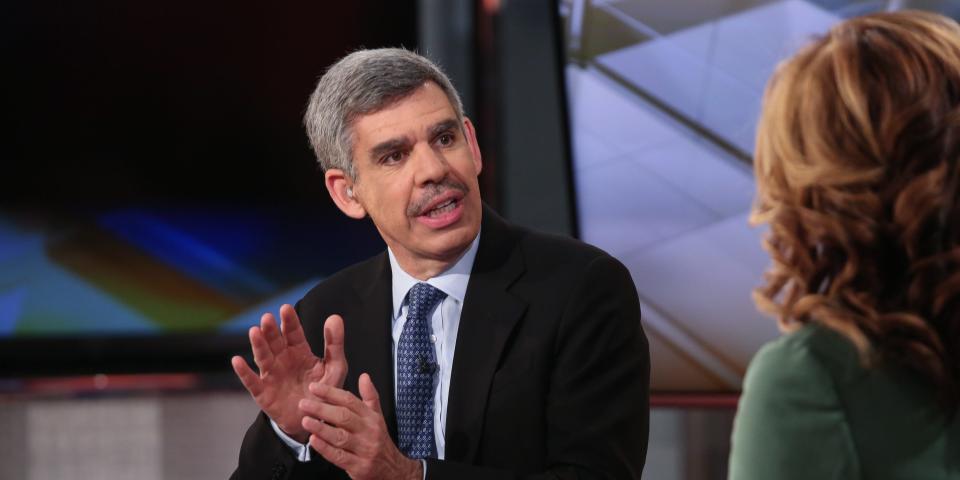The Fed may be forced to 'reverse course' if it appeases markets with big rate cuts, Mohamed El-Erian says

If the Fed appeases the market, it could risk a sharp reversal later, Mohamed El-Erian wrote in the FT.
The more the Fed gives in to investors on rate cuts next year, the more they will press for even more dovishness.
"If investors price in additional rate cuts, it is harder for the Fed to pursue its mandate without a big market reaction."
Markets are jubilant about a Federal Reserve policy pivot to rate cuts next year, but there's a risk of the central bankers giving into those expectations, according to economist Mohamed El-Erian.
To ease the disconnect between the market and the Fed's policy stance, the Fed may go too far and be forced to about-face, he wrote in the Financial Times on Sunday.
"The specific risk today is that, wishing to avoid unsettling market volatility, the Fed validates the market loosening with sizeable rate cuts but then is forced to reverse course later," he said.
The problem is that markets will keep demanding more cuts, El-Erian explained. The more the Fed appeases investor expectations for big and early rate cuts next year, the more they will press for even more dovishness.
"If investors price in additional rate cuts, it is harder for the Fed to pursue its mandate without a big market reaction," he added.
Since late October, markets have been in a monster rally as signs of cooling inflation raised hopes for upcoming rate cuts.
Last week, the Fed reinforced those expectations as officials signaled that three quarter-point rate cuts are coming in 2024. But then markets sputtered on Friday after New York Fed President John Williams said rate cuts aren't being discussed.
"The inflation round-trip is neither simple nor complete. The resulting shift in the configuration of the global economy and financial markets will be felt for several years," El-Erian said.
Read the original article on Business Insider
